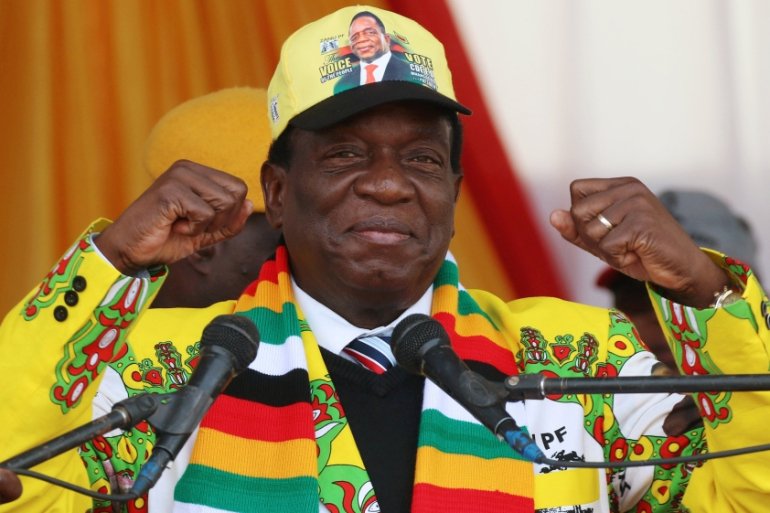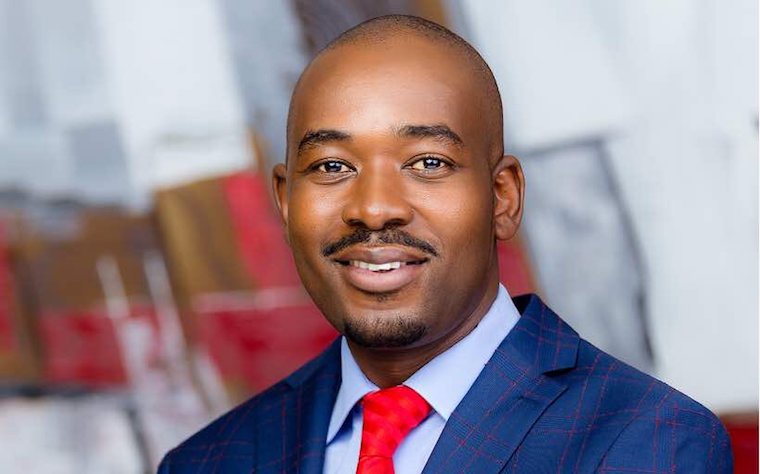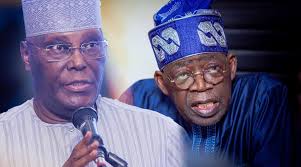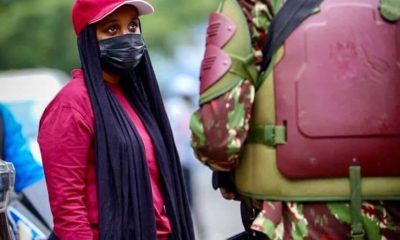
Politics
How President Mnangagwa Clung to Power in Zimbabwe’s Controversial Election

Zimbabwe’s President Emmerson Mnangagwa has secured a second term in office after a closely fought presidential election that was overshadowed by delays and allegations of irregularities.
According to the official results announced by the Zimbabwe Electoral Commission (ZEC) on Saturday, Mnangagwa won 2,350,711 votes, or 52.6% of the total, while his main challenger Nelson Chamisa of the Citizens Coalition for Change (CCC) party received 1,906,734 votes, or 44%.

iexclusivenews reports that the 80-year-old leader’s victory extends the rule of his Zanu-PF party, which has been in power since Zimbabwe gained independence from Britain in 1980.
However, Chamisa, 45, rejected the results as “fraudulent and illegal” and said he would challenge them in court. His party had earlier raised concerns about the late delivery of voting materials, the omission of some of its candidates from the ballot papers, and the printing of the ruling party’s candidates on CCC’s rolls.
RELATED: Zimbabwe On The Edge: Who Will Rule The Country Next?

A Peaceful But Flawed Election
The election on Wednesday was the second one in Zimbabwe since the ouster of longtime authoritarian leader Robert Mugabe by the military in 2017. Mnangagwa, who was Mugabe’s deputy and nicknamed “The Crocodile”, succeeded him after orchestrating the coup. He then retained his grip on power in 2018 when he beat Chamisa in a disputed presidential vote.
The latest election was seen as a test of Zimbabwe’s democratic credentials and an opportunity for the country to rebuild its economy and international reputation.
More than seven million voters were registered to cast their ballots for the president, 210 members of parliament, and 1,958 local councilors. Voting continued for a second day in parts of Zimbabwe where polling started behind schedule on Wednesday. A presidential decree extended voting until Thursday in three provinces, including the capital Harare where Chamisa’s party enjoys popular support.
Observers commended the peaceful conduct of the polls but said the election process fell short of many regional and international standards. The European Union Election Observation Mission (EU EOM) said in a preliminary report released on Friday that “fundamental freedoms were increasingly curtailed” during the elections, adding that “acts of violence and intimidation” resulting in a “climate of fear” were also witnessed during the polls.
Around 40 election monitors were arrested by Zimbabwe’s police Thursday for allegedly co-ordinating the release of results ahead of the final tally of the ballots. Human rights group Amnesty International said the arrests occurred “after the Zimbabwe NGO Forum released a report detailing irregularities that they had observed on election day”.
What Next For Zimbabwe?
Mnangagwa’s reelection means that he will continue to lead Zimbabwe for another five years. He has promised to revive the country’s economy, which has been battered by hyperinflation, corruption, and sanctions. He has also pledged to uphold human rights, fight corruption, and implement political reforms.
However, analysts said that Mnangagwa faces many challenges ahead. He will have to deal with a divided nation, a fractured opposition, and a restless population that is demanding better living conditions. He will also have to navigate a complex regional and international environment that is wary of his legitimacy and credibility.

How President Mnangagwa Clung to Power in Zimbabwe’s Controversial Election
Chamisa, on the other hand, has vowed to pursue his legal challenge against the election results. He has also called for peaceful protests and civil disobedience to pressure Mnangagwa to concede defeat. He has accused Mnangagwa of stealing his victory and betraying the hopes of millions of Zimbabweans who want change.
The outcome of Chamisa’s challenge and his supporters’ actions could determine whether Zimbabwe will witness a peaceful transition or a violent confrontation in the coming days and weeks. The international community has urged both sides to respect the rule of law and avoid violence.
Zimbabwe’s President Mnangagwa wins a second term in a controversial election. Learn how he did it and what it means for the country’s future.
Source: iexclusivenews and CNN




























